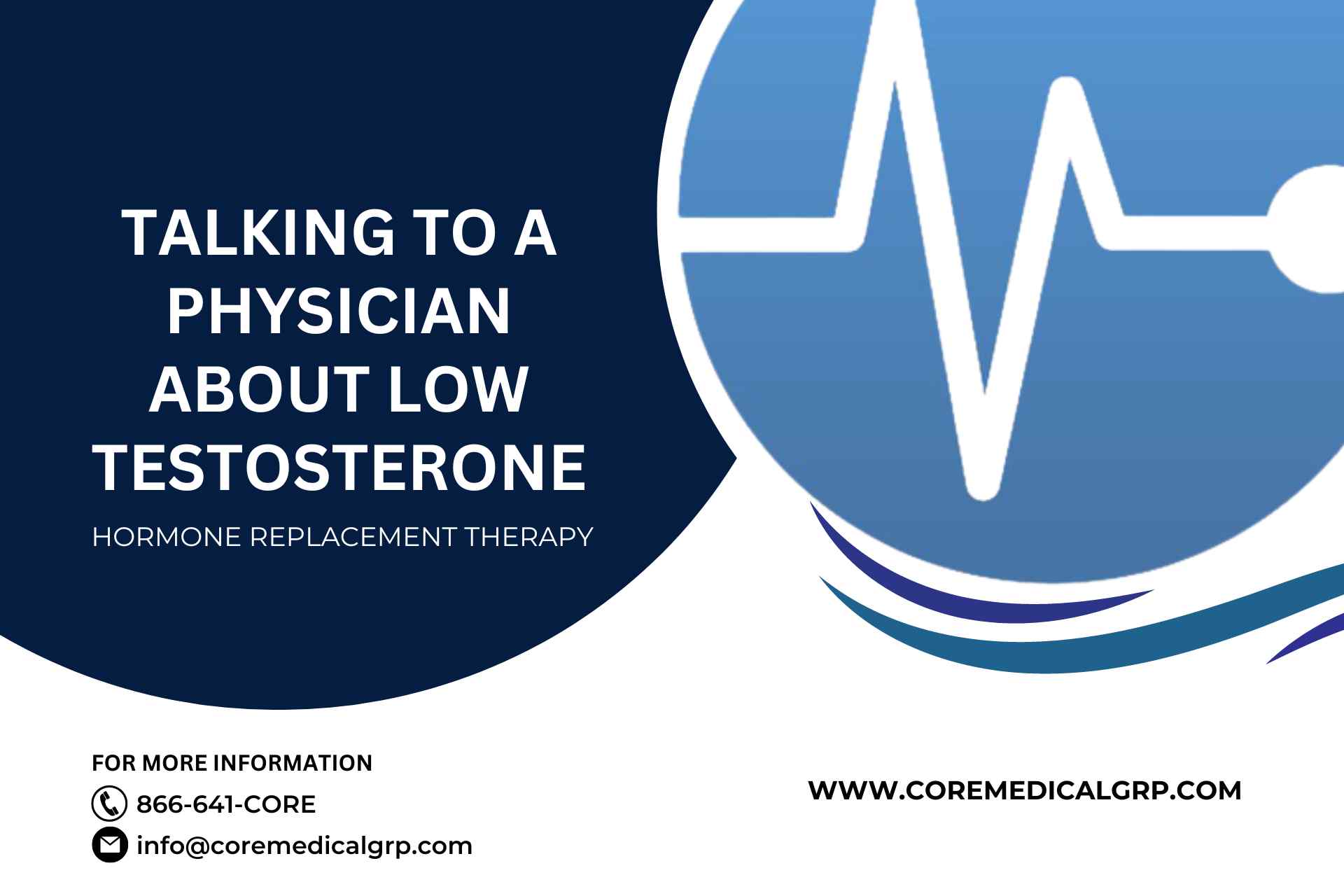
You may find it difficult to distinguish the signs and symptoms of low testosterone from the changes that normal aging causes, or you may mistakenly attribute them to other medical conditions.
So, if you have symptoms of Low Testosterone, talk to your doctor during your routine checkup and ask if you should have a blood test. If you have diabetes, ask your doctor if you should be tested for Low Testosterone.
Additionally, the Endocrine Society recommends that all men with type 2 diabetes have their testosterone levels checked. Moreover, patients diagnosed with diabetes have a higher risk of also having low testosterone.
Key Questions to Ask Your Doctor
Having a prepared list is a great way to ensure that your doctor addresses all your questions about Low Testosterone. That’s why we’ve created this useful Doctor Discussion Guide. Additionally, print it out and take it with you to your next doctor’s visit. Thus, if there are more questions you would like to ask, be sure to add them to the list. Remember, only your doctor can decide if you need a blood test. So, the more information you provide, the better it will be for him to decide what’s best for you.
- First, I don’t feel sick; I don’t feel like myself anymore. What could be causing it?
- Second, Are the symptoms I am experiencing and my other conditions related to Low Testosterone? Considering my symptoms, should I be tested for Low Testosterone?
- Third, What medical treatment options are available if I have Low Testosterone?
- Fourth, What is the difference between the different testosterone replacement therapies?
- Fifth, If I have Low Testosterone, what happens if I don’t have it treated?
- Lastly, How do my diet, fitness, and lifestyle affect my testosterone?
If you’re taking prescription, over-the-counter, or vitamin supplements, be sure to tell your doctor. There are several different treatment options available. Which treatment depends on what you and your doctor decide is appropriate.
FDA-approved treatment options:
- Gels – You apply testosterone gels daily, and your skin absorbs the testosterone into your body. In addition, gels provide continuous delivery of testosterone throughout the day. It’s important to ensure that other people are not exposed to the gel. Moreover, this usually happens when you make skin-to-skin contact with the application site.
- Patches – You apply patches daily to allow your skin to absorb testosterone.
- Injections – Your doctor administers testosterone shots, usually in the upper buttock, every 1-2 weeks.
- Buccal Tablet – You apply the tablet to your gum, which absorbs testosterone over 12 hours.
- Pellets – During a surgical procedure, a doctor inserts pellets under your skin near the hip.
More information about Low Testosterone?
At Core Medical Group, we take a patient-focused approach to low testosterone therapy. Our clinic is committed to providing trustworthy healthcare solutions. Before suggesting any treatment, we perform comprehensive blood work to determine the exact cause of your symptoms. Take the first step towards regaining your vitality by calling us at 561-243-1219 or visiting our website to learn more about how we can assist you.

